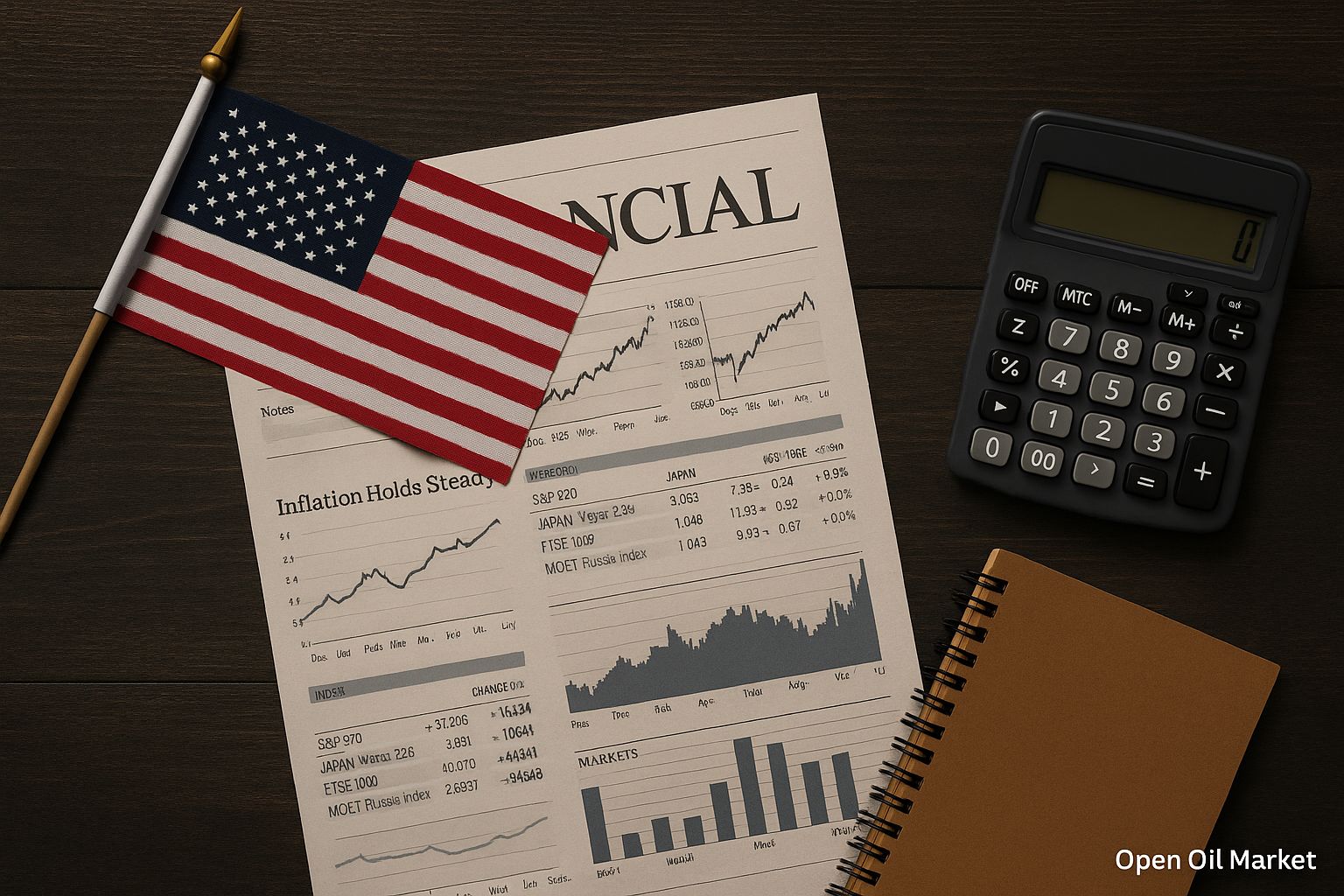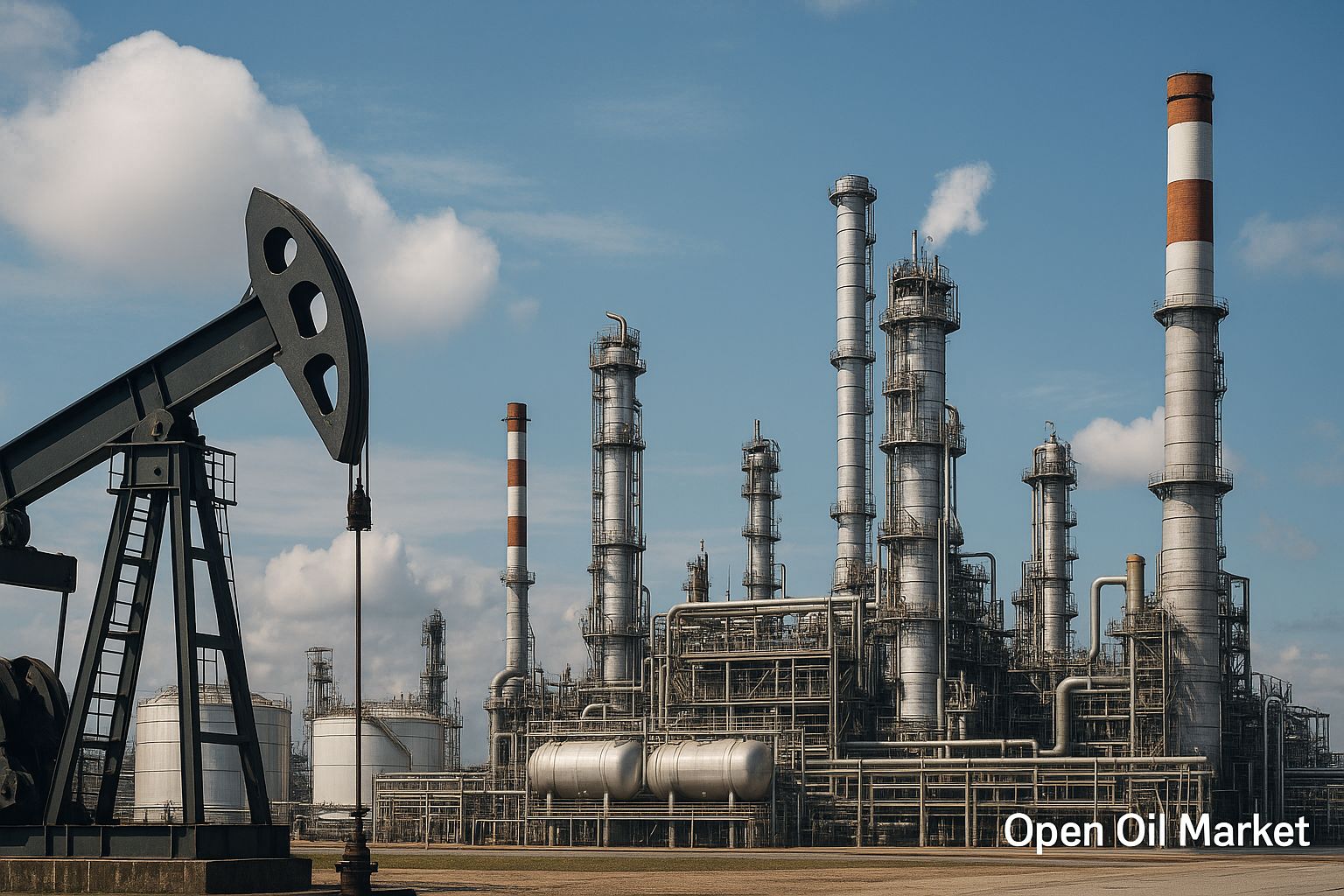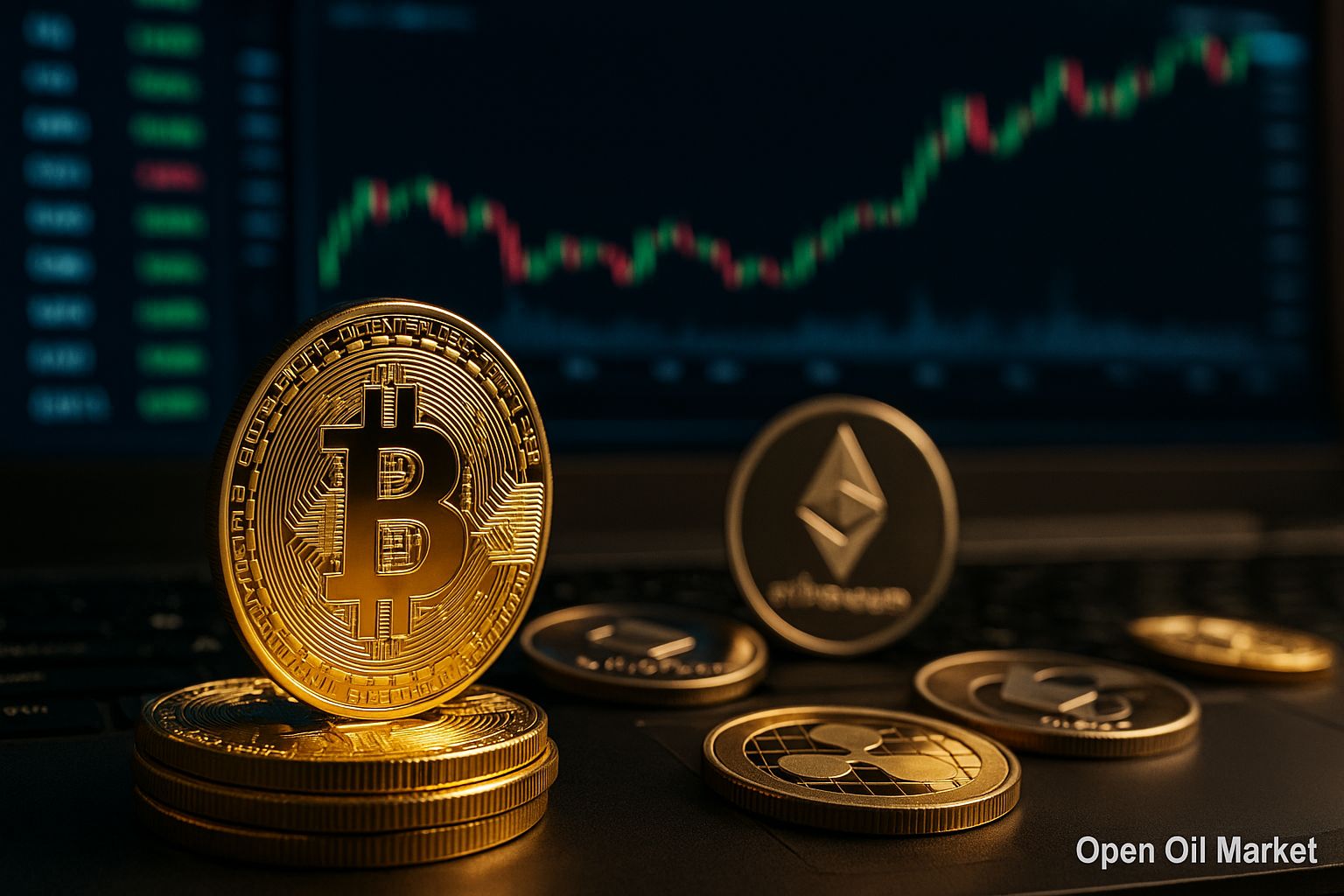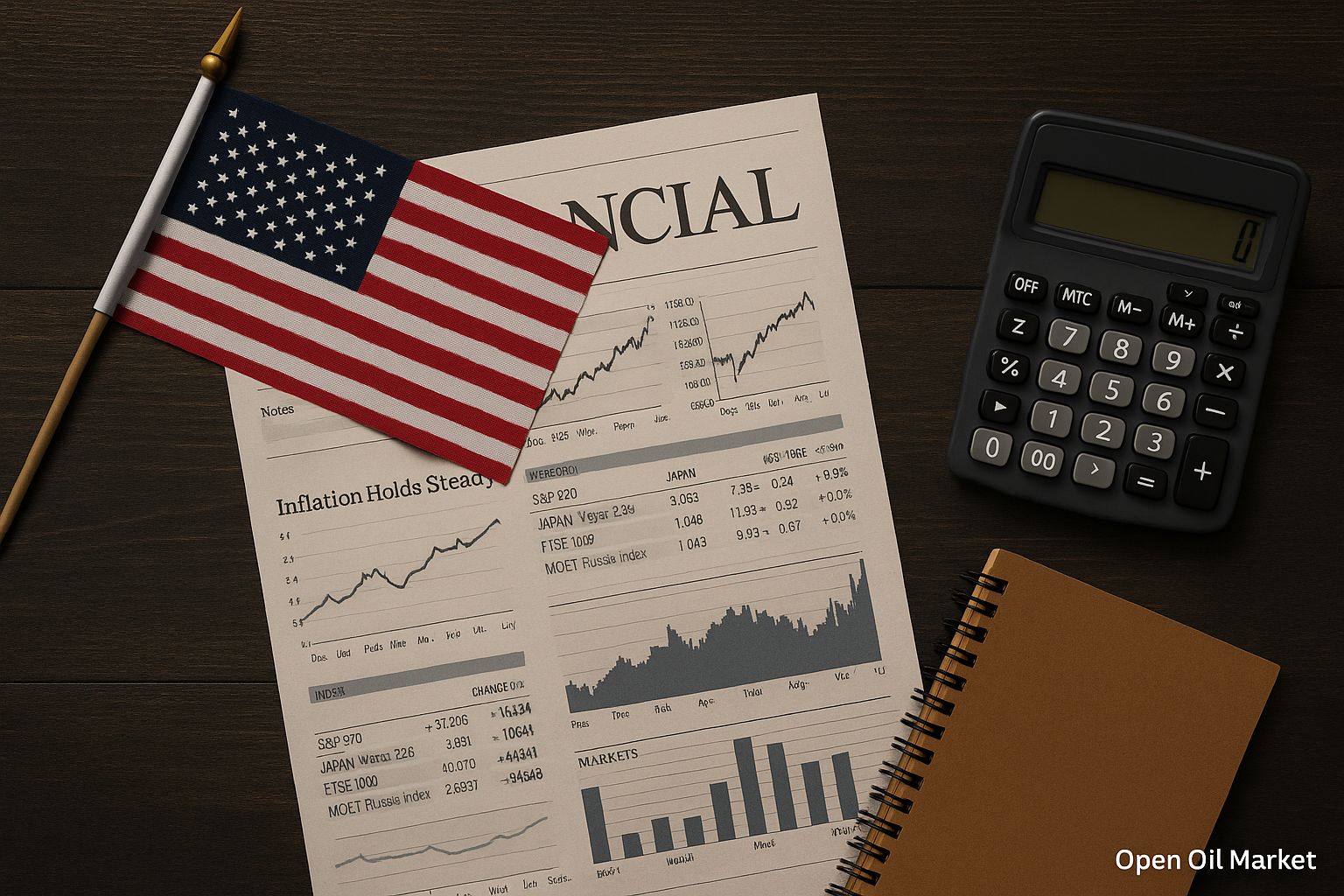
Economic News for August 23, 2025: Fed's Signals on Rate Cuts, Recession in Germany, Inflation in Japan, Earnings Reports from Global and Russian Companies, Movements of S&P 500, Euro Stoxx 50, Nikkei 225, and MOEX
Following an eventful Friday, global financial markets entered the weekend with an air of optimism. The main topic was Fed Chair Jerome Powell's speech at the Jackson Hole symposium, where he indicated the possibility of an imminent easing of monetary policy. This "dovish" signal led to a rise in stock indices and a decline in bond yields, overshadowing the negative effects of the confirmed recession in Germany. Investors worldwide are assessing new macroeconomic data and preparing for further developments in the upcoming week.
Market Reactions to Fed Signals
- Dovish Signal: Jerome Powell hinted in his speech at a potential rate cut at the September FOMC meeting. He noted a slowdown in inflation and a cooling labor market, suggesting readiness to ease policy as long as price controls are maintained.
- Market Rally: The prospect of a possible rate cut sparked a surge in stock purchases. The Dow Jones jumped over 2%, reaching a historic high, while the S&P 500 gained about 1.6%. European markets also closed positively, with the pan-European STOXX 600 hitting a five-month high.
- Bonds and Dollar: U.S. Treasury yields fell on expectations of policy easing, while the U.S. dollar weakened. Investors shifted assets toward riskier securities, considering the increased likelihood (around 90%) of a Fed rate cut in September, compared to ~75% before Powell's speech.
Inflation in Japan: Above Target but Slowing
- Price Growth in July: Fresh consumer inflation data from Japan showed that the core consumer price index (excluding fresh foods) rose by 3.1% year-over-year in July. While this figure exceeded the Bank of Japan's target of 2%, the growth rate slowed compared to June's 3.3%, indicating a decline in inflationary pressures.
- BoJ Policy Expectations: Inflation remains above target, heightening expectations for tighter policy from the Bank of Japan. Many analysts forecast a rate hike by the end of the year if price growth remains sustained. Against this backdrop, the yen appreciated significantly, bolstering the stocks of Japanese banks while export-oriented companies faced pressure from the stronger currency.
German Economy: Recession Confirmed
- GDP Decline: Preliminary data indicates that Germany's GDP contracted by 0.3% in Q2 2025 compared to the previous quarter. This marks the third consecutive quarter of decline, officially confirming a recession in Europe's largest economy. The downturn was deeper than analysts had anticipated (forecasted around -0.1%), signaling ongoing challenges in Germany's industrial and export sectors.
- Europe's Response: Despite the weak statistics from Germany, European markets managed to show gains as the week closed, buoyed by the positive signals from the Fed. The DAX index (Germany) and broad Euro Stoxx 50 both gained around 0.3–0.5%, offsetting earlier declines. Investors hope that signs of recession will bolster arguments for stimulus measures—both from the German government (fiscal programs) and the European Central Bank (more accommodative monetary policy).
- ECB Policy Outlook: The deepening slump in Germany exacerbates the question of the ECB's next steps. While inflation in the eurozone remains above the target level, the regulator leans toward maintaining elevated rates. However, worsening economic dynamics may compel the ECB to adopt greater flexibility in the autumn. Upcoming data on business activity and consumer prices will clarify whether easing the policy is warranted.
China's Economic Slowdown and Expected Stimulus
- Weak July Metrics: China's economy showed a considerable slowdown in growth in July—recording the worst rates since the beginning of the year. The statistics indicated a contraction in industrial production and investment, alongside a continuing crisis in the real estate market. Chinese exports suffer from trade barriers and weakened global demand, pulling overall GDP down.
- Support Measures: Expectations for additional stimulus from Beijing have increased. The market anticipates new initiatives from authorities, including potential tax cuts, increased infrastructure spending, and accommodative monetary policy. The People's Bank of China has already taken some measures (rate cuts, supporting the stock market), but investors are awaiting more decisive actions. Hopes for stimulus help stabilize declines in Chinese stock markets and commodity prices, although the situation remains fragile.
Russian Market: Ruble and Central Bank Policy
- Ruble Exchange Rate: The Russian currency closed the week weaker. The U.S. dollar trades around 80.7–81 rub., and the euro is above 93.5 rub. (official rates from the Central Bank of Russia for August 23–25: $1 = 80.75 rub; €1 = 93.63 rub). The ruble continues to face pressure due to capital outflows and relatively low oil prices (Brent around $68 per barrel). Authorities are monitoring the market, with the Ministry of Finance and the Bank of Russia expressing readiness to use tools to stabilize the exchange rate if needed.
- Monetary Policy: Rising inflation in Russia over the summer and the weakening ruble have heightened expectations for further increases in the key rate. The Bank of Russia already raised the rate at its last meeting to curb price pressures. Additionally, according to the regulator, the pace of lending to the Russian economy accelerated to +1.1% in July (up from +0.5% in June), indicating heightened demand for loans. The Bank is signaling its willingness to tighten policy if inflationary risks do not subside.
Corporate Results: Earnings Reports and Forecasts
- Global Earnings: The quarter earnings season is nearing its end, and overall results have surpassed analysts' expectations. In the U.S. and Europe, most major companies reported robust revenue and profit growth. For instance, retailer Walmart reported a significant increase in sales, confirming the resilience of consumer demand. Many technology and industrial giants also exceeded forecasts. Although certain firms provided cautious guidance (e.g., Intuit revised its growth estimate down for the next quarter), the overall earnings backdrop is positive and supports market sentiment.
- Russian Companies: On the Russian market, financial results for the first half of the year continue to be released. Reports from several issuers demonstrate mixed performance: export-oriented giants are feeling the effects of falling global prices and sanctions. For example, the metallurgical holding Rusal reported a net loss for H1 2025 compared to a profit the previous year. The banking sector shows mixed trends, with some private banks experiencing a sharp drop in profits. Upcoming releases from major state corporations (in the oil and gas and financial sectors) at the end of August and the beginning of September will provide a fuller picture of the state of the corporate sector in Russia.
Global Indices: S&P 500, Euro Stoxx 50, Nikkei 225, and MOEX
- U.S. (S&P 500): The American stock market finishes the week with robust growth. The S&P 500 is nearing record levels, supported by solid corporate results and expectations of policy easing from the Fed. Investors in the U.S. view the combination of slowing inflation and resilient consumption positively.
- Europe (Euro Stoxx 50): The key European index has risen to its highest levels since spring. Overall euphoria regarding the dovish signal from the Fed and hopes that the ECB will refrain from further rate hikes have buoyed sentiment in European markets, despite the recession in Germany.
- Asia (Nikkei 225): The Japanese index Nikkei 225 remains near multi-decade highs. Improved domestic economic indicators have supported the Japanese market, although the recent strengthening of the yen may limit further growth in the Nikkei. Investors are closely monitoring the rhetoric of the Bank of Japan, as signals of an imminent rate hike could trigger a market correction.
- Russia (MOEX): The MOEX index ended the week with little change. External positivity (increased risk appetite) supported Russian stocks, but local factors—weak ruble and geopolitical uncertainty—curbed activity. Investors are waiting for earnings reports from key companies and signals from regulators, so the market remains within a narrow range.
What to Watch: Investor Radar
- Powell and Rates: The Fed's dovish pivot has become the key driver of sentiment. The easing rhetoric in the U.S. sets a positive tone for stock markets worldwide. Investors are now awaiting confirmation of the course toward rate cuts in upcoming economic data—primarily reports on the U.S. labor market and inflation for August.
- European Economy: The deepening recession in Germany is a concerning signal for the European Union, but hopes for support measures mitigate pessimism. Markets will closely monitor the ECB's September meeting, where the regulator will need to take weak growth into account when making decisions on rates.
- Russia: Domestic Factors: The near-term outlook for the Russian market depends on a mix of external conditions and local events. Key indicators include the ruble exchange rate and actions by the Bank of Russia, as well as earnings reports from large companies. Trading participants should consider potential regulatory moves and corporate results to adjust their strategies promptly.




